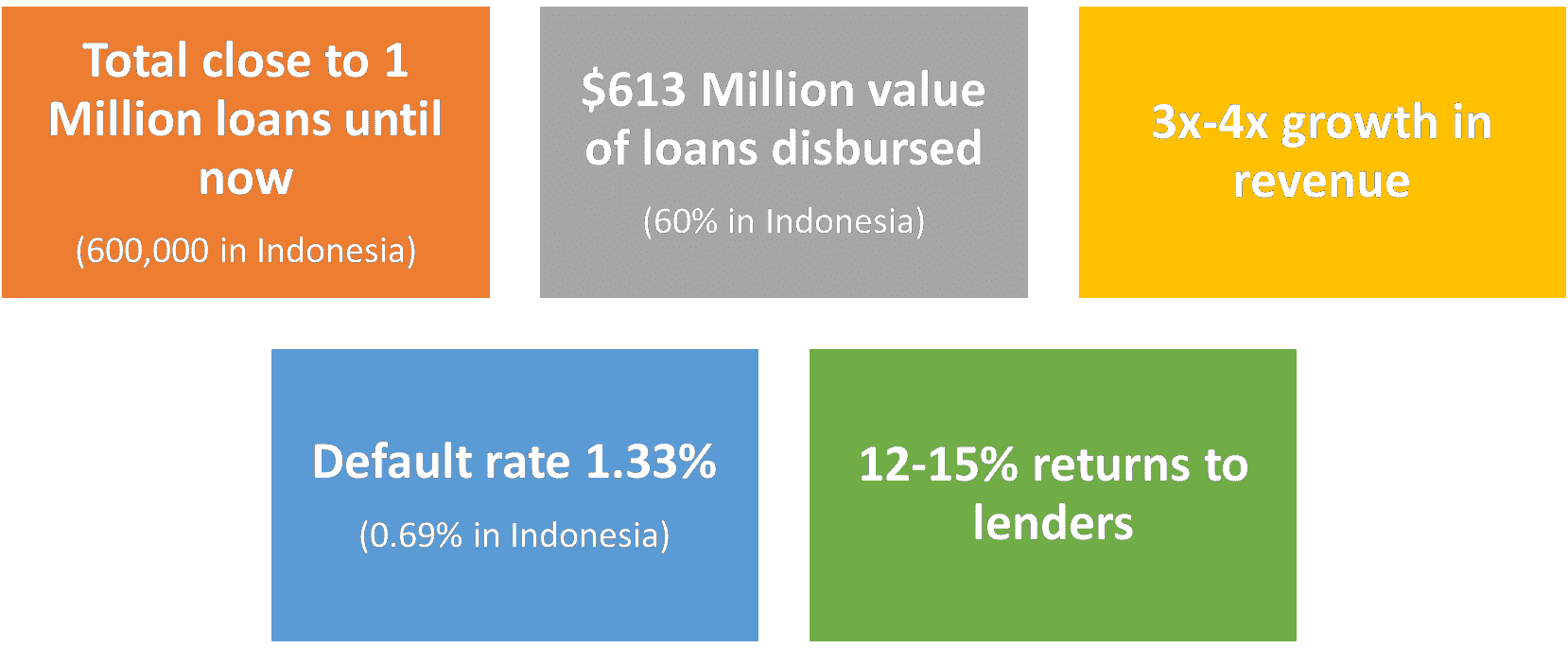The importance of small and medium enterprises (SME) in the Southeast Asian region cannot be accentuated enough.
According to the Association of South East Asian Nations (ASEAN), SMEs account for between 88% and 99% of total establishments in ASEAN member states and between 51% and 97% of total employment. The contribution of these enterprises to each state’s gross domestic product (GDP) is between 30% and 53% and the contribution of SMEs to exports is between 10% and almost 30%.
Yet this sector faces a lot of systemic hurdles when it comes to raising funds.
Traditionally, the options were limited to raising funds through friends and family or through financial institutions where SMEs may not be the key target segment. Banks often require collaterals and prefer to give loans to prime credit borrowers aside from longer-term loans and lengthy processing time. Unfortunately, there are SMEs that do not have these collaterals, probably due to low credit history, and thus find it difficult to raise funds.
This led to SME and micro SME (MSME) segments to become financially underserved. According to the International Monetary Fund’s Financial Access Survey, the outstanding loans to SMEs from banks was only 6.54% of GDP in Indonesia in 2018.
In order to solve this market inefficiency, several peer-to-peer (P2P) lending companies brought individual lenders and borrowers together on their platform and these flourished.
Soon after, P2P lending in Indonesia experienced rapid growth. Based on data from the OJK, the Financial Services Authority of Indonesia, the P2P online lenders have channeled loans totaling to $3.52 billion (IDR 49.79 trillion) as of July 2019, a 119% increase year-to-date.
Modalku is among the pioneers and it operates across three countries in South East Asia: as Modalku in Indonesia and under the brand Funding Societies in Singapore and Malaysia.
“We aim to be the largest digital lending platform to serve underserved SMEs in the region. Our focus is to bridge the financing gap to underserved SMEs that do not have collaterals and cannot go to banks for funding. Our price range is higher than banks but affordable and we do not want to compete on price, instead we are here to complement banks,” said Reynold Wijaya, co-founder and CEO of Modalku.

From left: Modalku co-founders Reynold Wijaya (CEO) and Iwan Kurniawan (COO)
Wijaya, along with two other friends, started Modalku in 2016. Before co-founding Modalku, he was an operations executive at a leading business conglomerate in Indonesia. He was joined by a friend from Harvard Business School days, Kelvin Teo, who became the co-founder of Funding Societies. Teo used to be a consulting professional at KKR, McKinsey and Accenture in Southeast Asia. The third co-founder, Iwan Kurniawan, is now the COO of Modalku. Kurniawan used to be a management consultant at Oliver Wyman in Singapore, where he developed growth strategies and operational risk management models for banks and financial institutions.
Range of loans and strong credit assessment are the key features of solution
Modalku built a platform that connects SMEs with investors through an online marketplace, thereby increasing access to alternate sources of short-term financing. Through this platform, lenders also get alternate investment opportunities in young businesses even for a small amount of money.
“We work with banks as we aim to serve the underserved. Our focus is P2P financing. We offer several types of financing products including invoice, supply chain, business term and micro loan financing, which do not require a collateral. Most of these are short term loans, with maximum tenure up to 24 months in Indonesia,” stated Kurniawan.
These products enable the companies to expand their businesses rapidly, especially through short term working capital and financial supply chain loans that can address their cash flow issues. The companies without collaterals and lower track records are now eligible. The time required for loan approval depends on the value of the loan.
In building its platform, the company realised that the key challenge in analysing MSMEs was the lack of available data.
“We have developed an automated risk assessment engine using machine learning to speed up the credit assessment process and shorten the approval process. We work with partners through API for data sharing and combine the financial aspects with business aspects data for analysis,” explained Wijaya.
The company developed investor and SME dashboards and an investor mobile application to improve access to its services. Using application programming interfaces, the company is able to integrate its platform seamlessly with other platforms or e-commerce sites wherein MSMEs seek financing, facilitating the building of its requisite ecosystem.
Kurniawan added that Modalku is currently working with over 50 partners, including e-commerce companies as well as leading financial institutions.
Regulatory approvals were critical
One of the key challenges faced by companies is the growing regulatory compliance requirements to protect SMEs and investor interests. The experience from China demonstrated the consequence of frauds from unchecked and unregulated growth of P2P lending companies.
Securities Commission Malaysia was the first regulator in Southeast Asia to regulate the P2P Financing industry in 2016. It required companies to have a minimum $1.19 million (MYR 5 million) paid up capital along with several other requirements, including a competent management team, IT infrastructure and scoring mechanism. It initially approved six P2P financing platforms that could comply with the following requirements: due diligence, credit assessment, default management and reporting, among others. It has approved five additional companies since then.
In Malaysia’s three-year-old P2P industry, there are 11 companies that have so far been approved by the regulator, these include Alixco, B2B Finpal, Fundaztic, Nusa Kapital and Quickash. Among these, Nusa Kapital is Shariah compliant lender and Alixco offers equity crowdfunding.
OJK in Indonesia has approved 99 P2P companies so far. These companies need a minimum $177,900 (IDR 2.5 billion), along with several other business requirements.
Modalku worked towards meeting all these requirements and attained approval from OJK in Indonesia and from SC in Malaysia. It became the first P2P lending platform in Singapore using government-registered escrow account for security of funds.
Business achieved a notable growth
“Growth for us is based on three key things. First, our ecommerce and technology platform partners, second the supply chain and distribution network and third, the micro segment in which we try to help ‘mom and pop shops’ and MSME enterprises,” disclosed Wijaya.

Source: Modalku
“Regionally we have given close to 1 million loans across countries so far with a loan value of $613 million. Out of this, around 600,000 loans were in Indonesia, with an estimated value of $385 million,” shared Wijaya.
With over 60% of its loans coming from Indonesia, this is the biggest market segment for the company among the three countries it operates in.
Though growth in lending volumes is translating to topline growth, the company is still taking losses.
“We are currently witnessing three to four times growth in our revenue. We are our on our way to profitability and expect to be profitable by next year. By end of 2019 we expect to give out more than 1 million loans across all countries with an estimated disbursed value of $700 million of which 60% will be in Indonesia,” added Wijaya.
One of the success factors for the company is the low default rate it has been able to achieve, largely on account of their machine learning bases assessment model. Kurniawan revealed that their default rate is lower than the industry at 1.33% (regional) and 0.69% in Indonesia.
The growing funding for the company also demonstrated the investor trust. Modalku has secured funding of $32 million, raised through two rounds of funding, of which $25 million was raised in Series B last year. This was led by Softbank Ventures Korea, the Japanese tech conglomerate’s early-stage venture capital (VC) unit along with other VC investors like Sequoia India, Alpha JWC Venture and Golden Gate Ventures.
The competition is strong
Modalku’s value proposition focuses on short term, customisable financing, loan value of larger sum, fast approval and a strong lender base. However, the competition is stiff as more companies enter the market.
In Indonesia, Modalku’s closest competitor is probably KoinWorks, a P2P lending company to SMEs that has a strong user base of over 300,000 for small value loans for business and educational purposes. It uses data networks to prevent fraud and gets real data of borrower candidate to get the credit scoring with artificial intelligence. Julo, another P2P lending company in Indonesia, also uses a credit assessment model using big data files. However, Julo’s main lenders are institutions rather than individual investors and provides unsecured money loan services. In 2018, Go-Jek, the ride hailing unicorn announced that it has entered into strategic partnerships with fintechs to enter the lending business.
Modalku’s key strengths are its partnerships, its seamless platform and range of loans that do not require collateral. It has demonstrated strong scalability with its stronghold in three key markets in Southeast Asia and there still remains significant untapped financing opportunity in these countries. However systemic challenges in form of frauds, growing regulatory requirements and NPAs remain. Competitive pressures and regulatory requirements are likely to continue to increase. To remain competitive, the company will need to constantly improve its credit risk assessment, automate and improve the loan approval time as well as rapidly expand its partner’s ecosystem.




All Comments